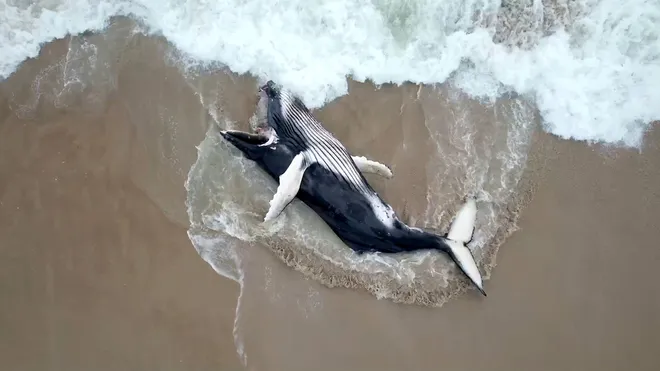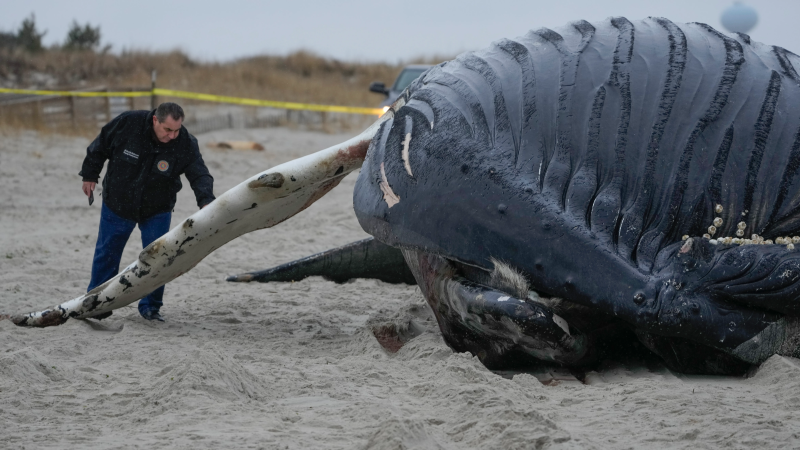Deceased humpback whale washes ashore in New Jersey beach town Long Beach Township
A deceased humpback whale was found early Thursday morning in the surf of a New Jersey beach town.
The estimated 20-30 foot humpback whale was found around 6:45 a.m. in the surf in Long Beach Township, New Jersey, according to a post from the Marine Mammal Stranding Center, a nonprofit dedicated to the rescue, rehabilitation and release of marine animals.
Long Beach Township is a small town located on a barrier island along the Jersey Shore and the Atlantic Ocean.
Long Beach Township Police are currently on the scene. The Marine Mammal Stranding Center said its own staff were on route, adding that it is still an active situation.

The humpback whale's age, gender or cause of death has not been publicly confirmed.
Thursday's humpback whale in New Jersey is the latest whale species to have been found deceased along the Atlantic Coast this year, stretching from Florida to New England.
Humpback whale found dead:Photos show humpback whale washed up on Virginia Beach: Officials to examine cause of death
What is a humpback whale?
Humpback whales are named for the distinctive hump on their backs. The species lives in all oceans around the world and has one of the longest migrations of any mammal on the planet, according to the National Oceanic and Atmospheric Administration Fisheries.
They can grow up to about 60 feet long and weigh up to 40 tons, and can live around 80-90 years. Humpback whales feed on krill and small fish, and strain huge volumes of water through the baleen plates in their mouths, which act as a filter-feeding system.
Their population has been severely reduced from historical numbers thanks to commercial whaling. Under the Endangered Species Conservation Act in 1970 and then under the Endangered Species Act in 1973, the U.S. had listed all humpback whales as endangered.

As of 2024, four of the 14 distinct population segments are still protected as endangered and one is listed as threatened, according to NOAA Fisheries. In U.S. waters, three humpback whale stocks are designated as depleted under the Marine Mammal Protection Act.
Disclaimer: The copyright of this article belongs to the original author. Reposting this article is solely for the purpose of information dissemination and does not constitute any investment advice. If there is any infringement, please contact us immediately. We will make corrections or deletions as necessary. Thank you.






